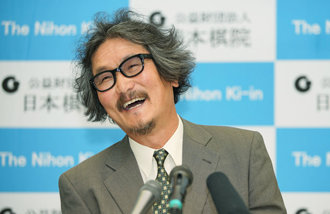‘12.12: The Day’ and lessons from S. Korea-US relations
‘12.12: The Day’ and lessons from S. Korea-US relations
Posted January. 30, 2024 07:46,
Updated January. 30, 2024 07:46
After watching "12.12: The Day" with my son, a high school student, he couldn't hide his perplexity, questioning, "How come the December 12th coup wasn't prevented?" It's a query likely echoed by many others. There's also curiosity about the United States' role, given its command over South Korea’s military forces at the time: Did the U.S. attempt to thwart the coup or, if not, why?
Coup origins are often internal. Reassessing the U.S. response on December 12 isn’t a rehashed anti-American sentiment but rather a reminder of the inherent nature of diplomacy, even in a close South Korea-U.S. relationship as a blood brother– a constant balancing act between ideals and practical benefits.
In his 1999 memoir, John Wickham Jr., former Commander of U.S. Forces in Korea, recounts the night of December 12, 1979. Then-Defense Minister Ro Jae-hyun was with Wickham in the U.S. 8th Army bunker. This placed the highest echelons of both South Korean and US military in one location. The forces - Capital Mechanized Infantry Division and the 26th Infantry Division - requested by Seoul Defense Commander Jang Tae-wan to Lee Gun-yeong, the commander of the third division, to quell the insurgents, were under Wickham’s operational command. Yet, Wickham advised Roh against moving troops, citing the high risk of misidentifying friend and foe in the dark. This decision, especially as Roh Tae-woo pushed the 9th Division into Seoul, suggests the US had no initial intent to suppress the new military faction.
One might wonder why the U.S. discouraged action against the rebels at such a critical juncture. William H. Gleysteen, who was the US Ambassador to Korea at the time, reflects in his memoirs that “on the night of Dec. 12 and next morning, the emphasis was on preventing a clash within the South Korean military, which could provoke North Korea, and on averting the collapse of Korea's political freedom. The primary focus was clearly on the former.” The United States' primary goal was to forestall a potential civil war within the South Korean military. This conflict might have incited a North Korean invasion, as well as prevented the demise of democracy due to the coup. Above all, the paramount concern was unmistakably the prioritization of security. It appears that the U.S., in this instance, chose to prioritize 'security interests' over the 'democratic values' it normally advocates.
The irony lies in that the Carter administration, more than ever before, championed diplomacy rooted in moral principles. In his 1977 inaugural speech, President Carter declared the U.S. couldn't support authoritarian allies suppressing human rights. Ahead of Carter’s 1979 visit to South Korea, the U.S. leveraged a promise from the Korean government to release 180 prisoners of conscience over six months in exchange for not withdrawing U.S. forces.
Such mood in Washington shifted dramatically after the 1979 November Iranian hostage crisis, especially post-October 26. With losing a key ally in the Middle East, the U.S. was keen not to destabilize the crucial South Korea-U.S. alliance against the communist bloc in East Asia. The Soviet invasion of Afghanistan on December 27 of the same year further underscored the need for a robust, stable approach to security on the Korean Peninsula.
Nevertheless, the United States has not always viewed its relationship with South Korea solely through the lens of national interest. The intervention in the Korean War during the 1950s, which saw the sacrifice of 140,000 Americans, was not motivated by strategic advantages but rather by a determination to counter unilateral communist aggression – a fusion of moralistic and realistic diplomatic principles. The South Korea-U.S. alliance, instrumental in deterring North Korean hostility and fostering economic growth, exemplifies the necessity for moralistic and realistic approaches in foreign policy to coexist. Perhaps the most significant takeaway from December 12 is the essential need for a flexible response tailored to each scenario.







